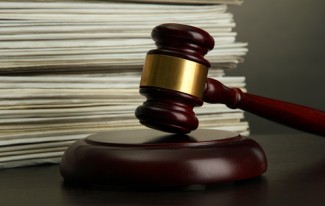May judges search the internet for facts? ABA ethics opinion sees problems

Judges can conduct legal research online for cases not cited by the parties, but using the internet to find facts concerning the parties or subject matter poses ethical problems, according to an ABA ethics opinion.
Finding “adjudicative facts” about a case online is generally banned by the ABA Model Code of Judicial Conduct, according to ABA Formal Opinion 478. An exception allows judges to go online for facts that are subject to judicial notice because they are generally known and not subject to reasonable dispute.
Adjudicative facts concern the immediate parties, including who did what, where, when, how, and with what motive or intent, the ethics opinion explains.
Judges’ decisions must be based on evidence presented on the record or in open court, and that is available to all the parties, the ethics opinion says. In an adversarial system, judges should not combine the role of advocate, witness and judge.
The opinion cites Model Rule 2.9(C) of the Model Code, which states: “A judge shall not investigate facts in a matter independently, and shall consider only the evidence presented and any facts that may properly be judicially noticed.” Comment 6 to the rule says the ban on investigating facts “extends to information available in all mediums, including electronic.”
The opinion presents guidelines for independent factual research by judges.
• Is additional information needed to decide a case? If so, that type of information must be provided by the parties or the lawyers, or must be subject to judicial notice.
• Is the purpose of a judge’s inquiry to corroborate facts, discredit facts, or fill a factual gap in the record? If the facts are adjudicative, it is improper for the judge to do the research.
• Is the judge looking for general or educational information needed for a better understanding of a subject unrelated to a pending or impending case? If so, the inquiry is appropriate.
• Is the judge seeking background information about a party or about the subject matter of a pending or impending case? If the information is of factual consequence in determining a case, it must be subject to the adversary process.

The opinion provides some hypotheticals.
In one example, a judge in a suit for overtime pay is skeptical of a lawyer’s claim that the plaintiff could not have worked more than 40 hours a week because the restaurant is open for limited hours. The judge goes online and sees the restaurant is open 15 hours a day, seven days a week.
Because the restaurant’s hours are key to the plaintiffs claim, the research violates the Model Code of Judicial Conduct. The judge should instead ask the parties and their lawyers to provide admissible evidence about the restaurant hours.
In another hypothetical, a judge assigned to a complex case involving out-of-state lawyers wants to review the social media and websites of both the lawyers and parties. The judge wants to learn background information about the parties, to review a list of the lawyers’ current and former clients, and to read the lawyers’ writings.
The model code bars judges from consulting social media to gather information about a juror or party in a pending or impending case, the ABA opinion says.
Gathering information on the lawyers is a closer question, the opinion says. The information-gathering “may be permissible if it is done merely to become familiar with counsel who appear before the court similar to how a judge may have, in the past reviewed a legal directory like Martindale-Hubbell, or to determine whether the lawyer is authorized to practice in the jurisdiction,” the opinion says. “However, the judge’s independent research about a lawyer is not permitted if it is done to affect the judge’s weighing or considering adjudicative facts.”
In yet another hypothetical, a judge considering a claim for insurance coverage hears competing testimony about the cause of a fire that destroyed the plaintiff’s property. The judge’s law clerk provides summaries of articles about proper fire-investigation techniques. The research concerned an adjudicative fact that is not subject to judicial notice, and it was an improper independent factual investigation, the opinion says.
Third to the last paragraph corrected at 10 a.m. to change “lawyers” to “judges.”



